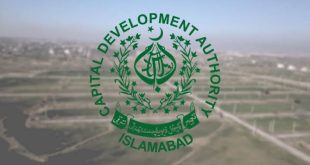As Pakistan enters new fiscal year, over 50 powerful institutions walk away with exemptions — while fuel, electricity, and daily life get costlier for the rest

ISLAMABAD, July 1 — As the Finance Bill 2025-26 makes its way to presidential assent, a closer look reveals an unsettling pattern: the bill quietly embeds over 50 tax exemptions, many favoring well-connected institutions, elite pensioners, and military-run enterprises — a move that lays bare the deep structural bias in Pakistan’s taxation regime.
Initially intended to rationalize tax treatment for charitable and non-profit organisations, the exemptions now extend to entities such as the Army Welfare Trust, Fauji Foundation, Karandaaz Pakistan, and even the pension of a former president and his widow. While public attention was focused on budget cuts and inflationary pressures, parliament approved these waivers with little debate.
Entities newly or repeatedly exempted include state corporations like the State Bank of Pakistan and WAPDA, relief and scholarship funds, Islamic financing instruments linked to mega-dam projects, and foreign development institutions such as the Asian Development Bank, ECO Bank, and SAARC Energy Centre.
Though some exemptions — such as those for health institutions or educational endowments — may serve public interest, the bundling of public welfare bodies with powerful financial and military-linked entities blurs the line between social equity and elite protection. The opacity of the process and absence of parliamentary scrutiny only sharpen public mistrust.
In the end, it’s not just about who avoids paying taxes — it’s about who ends up shouldering the burden. Pakistan’s tax-to-GDP ratio hovers at just 10–11%, far below the IMF-agreed target of 13.6% and regional averages of 19–20%. At the same time, the FBR estimates tax exemptions cost over Rs3.8 trillion in FY2023–24, roughly 4.6% of GDP — an amount that surpasses total development spending and half the nation’s entire tax revenue. These figures reveal a system where the privileged are written out of obligation, while the poor are taxed to fill the gap.
For the average citizen — now paying more for fuel, electricity, and everyday essentials — the story is bitterly familiar: when it comes to taxation, some are always exempt, and the rest must make up the difference.
 Radio News Network Radio News Network
Radio News Network Radio News Network
